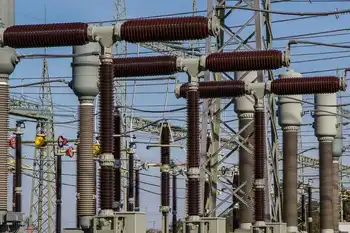Aquila Blames Alta Gov't Meddling For High Prices
EDMONTON, AB -- - Albertans can blame high power bills on government decisions that artificially kept costs down during the early stages of deregulation, says electricity distributor Aquila Networks Canada.
Power prices have come down but bills remain high because customers are paying charges that were deferred from 2000 and 2001, Aquila chief executive Fauzia Lalani said Thursday.
Lalani avoided pointing a finger at Premier Ralph Klein, who capped prices before the 2001 election. Instead she blamed "the decisions that were made."
In comments to The Journal editorial board, Lalani welcomed Klein's decision to have an advisory committee find out for "Martha and Henry out there in Alberta," as Klein put it, why bills are "unreasonable."
Lalani said the process will provide "clarity."
"The reason customers aren't seeing the real price is because it's shaded with all these deferral accounts and riders and everything else," she said. "They weren't seeing the real price in 2000, and now they have to catch up.
"Eventually they'll see the real price but it won't be until 2004."
Aquila welcomes the process because it is taking the heat over billing complaints, she said.
Prices spiked in 2000 and were still high when Klein called the election for March 2001. His government capped the price companies could charge -- below cost -- and ordered $40-a-month rebates to customers.
By 2002, prices had fallen but power bills jumped because the industry was allowed to start charging to make up for two years of price limits, Lalani said.
"Now, guess what? The bill is almost double what it was before deregulation," she said. "But is it the price of energy?"
She said power bills will start to make sense next year when, for most customers, the deferred charges end.
"For the first time since 1999, as a customer, you and I and everyone else will be paying the actual price for electricity versus all this convoluted stuff that's going on in the background.
"When you monkey with the system a little bit you're not sending the right price signals."
American-owned Aquila bought TransAlta's distribution and retail business in 2000 and sold the retail part to Epcor. It has since come under fire for producing inaccurate bills, and in some cases failed to bill customers for several months.
The Klein government ordered Aquila and other companies to give customers $75 credits for bills that were out by more than 20 per cent.
Lalani said the company's charges are now accurate 99 per cent of the time, but acknowledged it made some big mistakes.
So did others, she added. "It seems billing accuracy, and Aquila in particular, has become a scapegoat for everything over the last little while."
Part of the problem is that the province imposed regulations to separate the various charges on electricity bills, she said. The resulting complexity made bills hard to understand.
She said the administration of customers' accounts is also complex because Aquila must hand detailed billing information to electricity retailers, such as Epcor, and customers sometimes switch retailers.
Related News

Ontario prepares to extend disconnect moratoriums for residential electricity customers
TORONTO - The Ontario government is preparing to announce relief for residential electricity users struggling because of the COVID-19 emergency, according to sources.
Sources close to those discussions say a decision has been made to lengthen the existing five-month disconnect moratorium by an additional three months.
News releases about the moratorium extension are currently being drafted and are expected to be released shortly.
Electricity utilities in Ontario are currently prohibited from disconnecting residential customers for non-payment during the winter period from November 15 to April 30.
The province is also looking at providing further relief by adjusting time-of-use prices, which are designed to encourage…




